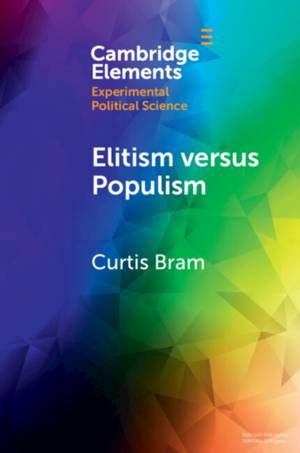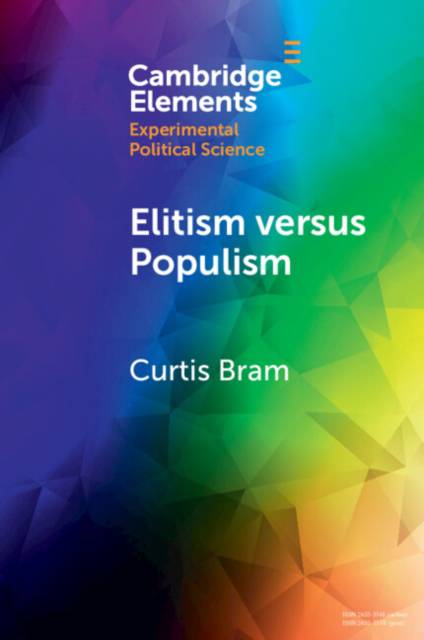
- Afhalen na 1 uur in een winkel met voorraad
- Gratis thuislevering in België vanaf € 30
- Ruim aanbod met 7 miljoen producten
- Afhalen na 1 uur in een winkel met voorraad
- Gratis thuislevering in België vanaf € 30
- Ruim aanbod met 7 miljoen producten
Zoeken
€ 35,45
+ 70 punten
Uitvoering
Omschrijving
Critics of populism and advocates of elitist democracy often place greater confidence in political elites than in the general public. However, this trust may be misplaced. In five experiments with local politicians, state legislators, and members of the public, the author finds a similar willingness across all groups to entrench their party's power when given the opportunity - a self-serving majoritarianism that transcends partisan lines. This tendency is strongest among committed ideologues, politicians running in highly competitive districts, and those who perceive opponents as especially threatening. Local elected officials even appear more focused on securing their party's next presidential victory than on opposing bans against their political rivals. These findings challenge the conventional mass/elite dichotomy, revealing little differences in undemocratic attitudes. Safeguarding democracy likely requires shifting focus from those individual attitudes to strengthening institutional restraints against majority abuses. This title is also available as Open Access on Cambridge Core.
Specificaties
Betrokkenen
- Auteur(s):
- Uitgeverij:
Inhoud
- Aantal bladzijden:
- 74
- Taal:
- Engels
- Reeks:
Eigenschappen
- Productcode (EAN):
- 9781009546942
- Verschijningsdatum:
- 12/06/2025
- Uitvoering:
- Paperback
- Formaat:
- Trade paperback (VS)
- Afmetingen:
- 152 mm x 229 mm
- Gewicht:
- 113 g

Alleen bij Standaard Boekhandel
+ 70 punten op je klantenkaart van Standaard Boekhandel
Beoordelingen
We publiceren alleen reviews die voldoen aan de voorwaarden voor reviews. Bekijk onze voorwaarden voor reviews.







